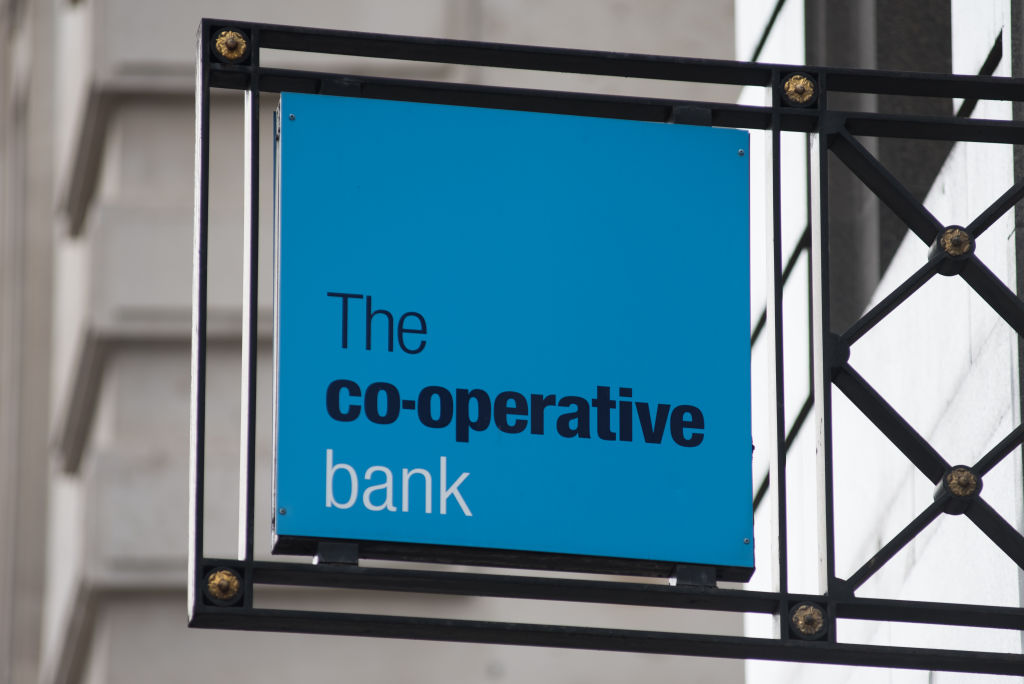The Co-op unveils new 7% regular saver- is it the best on the market?
The Co-operative Bank has launched a new best buy regular saver offering 7%. Is it the top deal and how does it work?


Get the latest financial news, insights and expert analysis from our award-winning MoneyWeek team, to help you understand what really matters when it comes to your finances.
You are now subscribed
Your newsletter sign-up was successful
Want to add more newsletters?

Twice daily
MoneyWeek
Get the latest financial news, insights and expert analysis from our award-winning MoneyWeek team, to help you understand what really matters when it comes to your finances.

Four times a week
Look After My Bills
Sign up to our free money-saving newsletter, filled with the latest news and expert advice to help you find the best tips and deals for managing your bills. Start saving today!
The savings battle continues as the Co-operative Bank becomes the newcomer on the regular savings block, offering a handsome 7%- but is it the best deal on the market?
The product joins three other lenders offering 7% AER on regular savings. It follows Nationwide’s popular 8% regular saver plummeting just two weeks ago, leaving First Direct as the top runner.
Whilst the first three base rate freezes have pushed savings deals south, the latest pause on 1 February has surprisingly reignited some competition among lenders.
MoneyWeek
Subscribe to MoneyWeek today and get your first six magazine issues absolutely FREE

Sign up to Money Morning
Don't miss the latest investment and personal finances news, market analysis, plus money-saving tips with our free twice-daily newsletter
Don't miss the latest investment and personal finances news, market analysis, plus money-saving tips with our free twice-daily newsletter
As a result, we’ve seen newcomers like Co-operative Bank and credit card provider MBNA enter the market with attractive rates, and some lenders are also hiking their returns.
Find out how Co-operative Bank’s regular saver ranks, how it works and whether you’re eligible to open the account.
How does the Co-operative regular saver work?
The new Co-operative Regular Savings Account is offering a top rate of 7% AER.
The account can be opened with just £1 (which must be deposited within the first 30 days of opening) and you can save up to £250 per month.
So, if you saved £250 each month for a year, you would earn £114.21 in interest at the end of the year. But this is based on the rare sticking at 7% for a year, which could change.
The good news is there is no minimum monthly deposit, so you don’t have to set up a standing order or keep an eye on the account constantly.
The account will stay open for a 12-month term from the date of your first deposit, but unlike most other regular savers, the rate is variable. This means the rate could change at any time.
The provider reassures that if it sets out to lower the rate, customers will be informed at least two months before the change by email or post. If the rate is planned to increase, they will let you know within 30 days after it happens.
Plus, this could be a great option if you’re looking for an account that lets you access your cash, as this saver allows penalty-free withdrawals. When you take money out, you still receive the same accrued interest, but on the balance remaining in the account.
The regular saver can be opened online or in a branch either as a sole or joint account, and it can be managed via online banking, over the phone or in-branch.
After 12 months, your savings plus any interest earned will be moved to the bank’s instant access variable rate Smart Saver account, which returns a low 1.81% AER currently.
Are you eligible for the Co-operative regular saver?
Like most regular savers, this one also requires you to be a current account holder to access its 7% rate.
You must hold either a Co-operative Bank Current Account, Current Account Plus, Privilege current account, Privilege Premier current account, Student current account, Cashminder account or an Everyday Extra current account
To be eligible for this account you must also be a UK resident aged 16 years or above.
Is it the best deal on the market?
The Co-operative 7% rate is the best on the regular savings market, but three other providers offer the same including First Direct, Skipton Building Society and Gatehouse Bank- so how does it compare?
| Provider | Fixed or variable rate? | Minimum monthly deposit | Maximum monthly deposit | Penalty-free withdrawals | Flexibility | Current-account holder? |
|---|---|---|---|---|---|---|
| Co-operative Bank | Variable | £0 | £250 | Yes | No | Yes |
| First Direct | Fixed for one year | £25 | £300 | No | Yes. You can carry over any unused allowance (up to £300) into the following month. | Yes |
| Skipton Building Society | Fixed for one year | £0 | £250 | No | No | Yes |
Whilst the Co-operative saver is favourable for its no monthly deposit and penalty-free withdrawals, First Direct still comes out on top.
Firstly, it has a higher monthly deposit allowance, so if you were to put in £300 a month for a year, you would earn £136.50- £22.29 more than what you would earn with Co-operative.
Plus, the First Direct rate is fixed for a year, which means a guaranteed return depending on your balance. Whereas the Co-operative rate is variable, so this could change at any time.
It’s rare to see movement amongst regular savings often, but with the base rate expected to fall this spring, it could push the rate on this regular saver down.
Plus, regular savers are known for their caveats, Sarah Coles, head of personal finance at Hargreaves Lansdown explains.
“Regular savers are brilliant for those who are building their emergency savings,” she says.
“However, you need to check the small print, and see what you need to do in order to qualify for the great rate.”
“There is usually a limit on how much you can pay in each month, and there may be a limit on withdrawals too. You may need to commit to a deposit every month or you will lose the rate, and you may need to keep it open for a full year to avoid a penalty,” she adds.
If you are looking for a savings account that offers penalty-free withdrawals and no hassle, an easy-access account might be your best bet. Just be sure to check the small print for any hidden restrictions, such as limited penalty-free withdrawals and a bonus rate.
For a slightly higher interest rate, you can fix your cash for a year and earn up to 5.21% AER.
Get the latest financial news, insights and expert analysis from our award-winning MoneyWeek team, to help you understand what really matters when it comes to your finances.
Vaishali has a background in personal finance and a passion for helping people manage their finances. As a former staff writer for MoneyWeek, Vaishali covered the latest news, trends and insights on property, savings and ISAs.
She also has bylines for the U.S. personal finance site Kiplinger.com and Ideal Home, GoodTo, inews, The Week and the Leicester Mercury.
-
 UK unemployment hits highest level since 2021 – will interest rate cuts follow?
UK unemployment hits highest level since 2021 – will interest rate cuts follow?UK unemployment reached its highest rate in almost five years by the end of 2025. Is AI to blame and will the Bank of England step in with an interest rate cut in March?
-
 Did UK inflation fall in January?
Did UK inflation fall in January?After rising in December, analysts expect the next round of UK inflation data to show that disinflation returned in January
